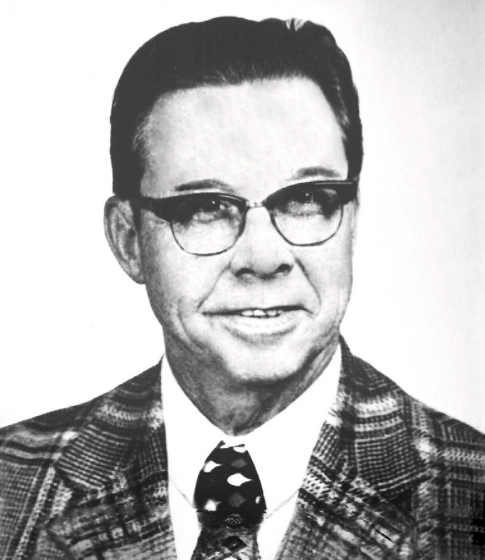
Claude R. Hocott (SPE)
AIME DeGolyer Distinguished Service Medal in
1980
Claude R. Hocott graduated with his bachelor's degree in 1933, Professor E. P. Schoch, a chemistry professor of great vision who founded the Department of Chemical Engineering, persuaded him to enroll in graduate school. Hocott stayed to research the Schoch process, earning a PhD in chemical engineering in 1937. Shortly before Hocott obtained his PhD, Humble Oil Company, on the recommendation of W. K. Lewis, a professor at MIT, had formed a research laboratory entirely devoted to researching methods for finding and producing oil and gas. Hocott was hired as a research engineer to work in this new laboratory. Since this laboratory was the first of its kind in the world, there was no shortage of interesting and important problems to be researched. Hocott's early publications related to issues of crucial importance for reservoir engineering. Researchers at the Humble Laboratory did pioneering work that was to become the basis for modern exploration and production technology. The success of the production research laboratory is perhaps best measured by noting that, by 1948, every major oil company in America, and many outside the U.S., instituted laboratories similar to Humble's.
Hocott was appointed as director of the Humble Laboratory when Stuart Buckley, the codiscoverer of the Buckley-Leverett theory, retired. When Humble was merged with Esso to form Exxon Production Research Co., Hocott was named the executive vice president of the newly-created company. He served in that capacity until he retired in 1974. During his years at Humble, Hocott became an important spokesman for the oil industry, serving as an oil and gas advisor to the Carter Administration and appearing on the McNeil-Lehrer Report. He held many offices in his professional society, the Society of Petroleum Engineers, including president in 1952, director in 1954, and distinguished lecturer in 1963 and 1987. He was an American Institute of Mining and Metallurgical Engineering director and served on many national committees.
Hocott helped to found the Gulf Universities Research Consortium, a group of universities in states bordering the Gulf of Mexico having faculties in marine science and geology. He served as vice president of this consortium from 1979 to 1983.
When Hocott retired from Exxon, he elected to devote his time to higher education, which he valued as the most important activity to ensure the future welfare of Texas. He initially commuted between Houston and Austin, where, in addition to teaching classes in chemistry and chemical engineering, he helped to found the Institute for Christian Studies, now the Austin Graduate School of Theology. Hocott supported the institute through advice and financial support for more than 30 years, serving as chancellor at the time of his death. He was very interested in theological studies that encompassed a profound respect for Biblical studies and also scientific truths. His primary goal at the institute was to promote high-quality research through research and travel grants.
His dedication to higher education was severely tested when the then dean of the College of Engineering, Earnest Gloyna, asked him to come out of his partial retirement and serve as chairman of the Department of Petroleum Engineering. Hocott reluctantly agreed to take on this challenge, saying his first and most important task was to identify his successor. He was appointed as a professor of petroleum engineering and chaired the department in 1974-1975.
Even after a successor was found, Hocott did not return to full retirement. He became director of the Texas Petroleum Research Committee (TPRC), a research group under the auspices of the Texas Railroad Commission that funded petroleum engineering research at both The University of Texas at Austin and Texas A&M University. He was the director of TPRC from 1975 to 1979.
Hocott's commitments to higher education, and to good applied research and the benefits it provides, were profound. It was not merely a topic for dinnertime conversation, but a passion, something truly worthy of his time, energy, and financial support. Claude and his wife, Billy, who died in 1979, endowed the Billy and Claude R. Hocott Distinguished Centennial Engineering Research Award. They also endowed the Hocott Lectureship in petroleum engineering.
Hocott received considerable recognition for his efforts on behalf of the oil industry, his profession, and higher education. He was named a distinguished graduate of The University of Texas College of Engineering in 1971 and elected to the National Academy of Engineering in 1974. He was named an honorary member of the American Institute of Mining, Metallurgical and Petroleum Engineers in 1975.

